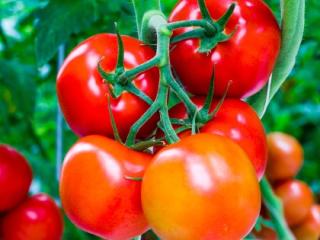- About
-
Research
- Agronomy and farming systems
-
Agricultural crop research
-
Research projects - agriculture
- About SASSA-SAI
- BioBoost
- Biomass Connect
- CTP for Sustainable Agricultural Innovation
- Climate Ready Beans - workshop presentations (March 2022)
- Crop diversity HPC cluster
- Final project workshop
- Get involved
- List of materials
- News and updates
- Partners
- The Sentinel Crop Disease Surveillance Network
- The research team
- UK Cereal Pathogen Virulence Survey
- UK wheat varieties pedigree
- Weed management - IWM Praise
- Crop breeding
- Crop characterisation
- Data sciences
- Genetics and pre-breeding
- Plant biotechnology
- Plant pathology and entomology
- Resources
-
Research projects - agriculture
- Horticultural crop research
- Crop Science Centre
- Research Projects
- Research Publications
-
Services
- Analytical Services
- Business Development
- Commercial trial services
- Membership
- Plant breeding
- Plant characterisation
- Seed certification
-
Training
-
Technical agronomy training
- Advanced crop management of bulb onions
- Advanced crop management of vegetable brassicas
- Advanced nutrient management for combinable crops
- Benefits of cover crops in arable systems
- Best practice agronomy for cereals and oilseed rape
- Developing a Successful Strategy for Spring Crops
- Disease Management and Control in Cereal Crops
- Incorporating SFI options into your rotation
- Protected Environment Horticulture – Best Practice
- Techniques for better pest management in combinable crops
- Crop inspector and seed certification
- Licensed seed sampling
-
Technical agronomy training
- News & Views
- Events
-
Knowledge Hub
- Alternative and break crops
-
Crop genetics
- POSTER: Diversity enriched wheat (2025)
- POSTER: Genetics of wheat flag leaf size (2024)
- POSTER: Wheat yield stability (2024)
- Poster: Traits for future cereal crops (2022)
- POSTER: wild wheat fragment lines (2022)
- POSTER: Improving phenotyping in crop research (2022)
- PRESENTATION: Plant breeding for regen ag
- Poster: Designing Future Wheat (2020)
- Crop nutrition
-
Crop protection
- POSTER: Understanding the hierarchy of black-grass control (2025)
- POSTER: Emerging weed threats (2025)
- POSTER: Disease control in barley (2025)
- Poster: Weed seed predation in regen-ag (2024)
- POSTER: Disease control in winter wheat (2025)
- POSTER: Mode of action (2023)
- POSTER: Inter-row cultivation for black-grass control (2022)
- POSTER: UKCPVS winter wheat yellow rust in spring 2025 (2025)
- Poster: Management of Italian ryegrass (2021)
- POSTER: UKCPVS winter wheat rusts - 2024/25 review (2025)
- POSTER: UKCPVS disease monitoring and the benefit to UK growers (2025)
- POSTER: Diagnosing and scoring crop disease using AI (2025)
- POSTER: Finding new sources of Septoria resistance (2024)
- POSTER: Fungicide resistance research (2024)
- POSTER: Detecting air-borne pathogens (2024)
- POSTER: Oilseed rape diseases (2024)
- POSTER: Fungicide resistance research (2024)
- POSTER: Improving chocolate spot resistance (2022)
- Poster: Pathogen diagnostics (2022)
- Fruit
- Regen-ag & sustainability
-
Seed certification
- POSTER: Wheat DUS (2024)
- POSTER: Innovation in variety testing (2024)
- POSTER: AI and molecular markers for soft fruit (2024)
- POSTER: Barley crop identification (2023)
- POSTER: Herbage grass crop identification (2023)
- POSTER: Herbage legume crop identification (2024)
- POSTER: Minor cereal crop inspecting (2023)
- POSTER: Pulse crop identification (2023)
- POSTER: Wheat crop identification (2023)
-
Soils and farming systems
- POSTER: Checking soil health - across space and time (2024)
- POSTER: Checking soil health - step by step (2024)
- POSTERS: Changing soil management practices (2022)
- Poster: Monitoring natural enemies & pollinators (2021)
- POSTER: Soil structure and organic matter (2024)
- POSTER: Novel wheat genotypes for regen-ag (2024)
- Video: New Farming Systems project (2021)
- Video: Saxmundham Experimental Site (2021)
- POSTER: Impact of prolonged rainfall on soil structure (2024)
- POSTER: Soil & agronomic monitoring study (2024)
- POSTER: The impact of rotations & cultivations (2024)
- VIDEO: Great Soils; soil sampling guidelines (2020)
- Poster: Soil invertebrates within arable rotations (2024)
- VIDEO: Soil health assessment (2021)
- POSTER: Saxmundham - modern P management learnings
- POSTER: Saxmundham - 125 years of phosphorus management
- Poster: Soil phosphorus - availability, uptake and management (2025)
- POSTER: Morley long term experiments (2025)
- POSTER: Exploiting novel wheat genotypes for regen-ag (2025)
- Video: Saxmundham Experimental Site (2021)
- Varieties

- About
-
Research
- Agronomy and farming systems
-
Agricultural crop research
-
Research projects - agriculture
- About SASSA-SAI
- BioBoost
- Biomass Connect
- CTP for Sustainable Agricultural Innovation
- Climate Ready Beans - workshop presentations (March 2022)
- Crop diversity HPC cluster
- Final project workshop
- Get involved
- List of materials
- News and updates
- Partners
- The Sentinel Crop Disease Surveillance Network
- The research team
- UK Cereal Pathogen Virulence Survey
- UK wheat varieties pedigree
- Weed management - IWM Praise
- Crop breeding
- Crop characterisation
- Data sciences
- Genetics and pre-breeding
- Plant biotechnology
- Plant pathology and entomology
- Resources
-
Research projects - agriculture
- Horticultural crop research
- Crop Science Centre
- Research Projects
- Research Publications
-
Services
- Analytical Services
- Business Development
- Commercial trial services
- Membership
- Plant breeding
- Plant characterisation
- Seed certification
-
Training
-
Technical agronomy training
- Advanced crop management of bulb onions
- Advanced crop management of vegetable brassicas
- Advanced nutrient management for combinable crops
- Benefits of cover crops in arable systems
- Best practice agronomy for cereals and oilseed rape
- Developing a Successful Strategy for Spring Crops
- Disease Management and Control in Cereal Crops
- Incorporating SFI options into your rotation
- Protected Environment Horticulture – Best Practice
- Techniques for better pest management in combinable crops
- Crop inspector and seed certification
- Licensed seed sampling
-
Technical agronomy training
- News & Views
- Events
-
Knowledge Hub
- Alternative and break crops
-
Crop genetics
- POSTER: Diversity enriched wheat (2025)
- POSTER: Genetics of wheat flag leaf size (2024)
- POSTER: Wheat yield stability (2024)
- Poster: Traits for future cereal crops (2022)
- POSTER: wild wheat fragment lines (2022)
- POSTER: Improving phenotyping in crop research (2022)
- PRESENTATION: Plant breeding for regen ag
- Poster: Designing Future Wheat (2020)
- Crop nutrition
-
Crop protection
- POSTER: Understanding the hierarchy of black-grass control (2025)
- POSTER: Emerging weed threats (2025)
- POSTER: Disease control in barley (2025)
- Poster: Weed seed predation in regen-ag (2024)
- POSTER: Disease control in winter wheat (2025)
- POSTER: Mode of action (2023)
- POSTER: Inter-row cultivation for black-grass control (2022)
- POSTER: UKCPVS winter wheat yellow rust in spring 2025 (2025)
- Poster: Management of Italian ryegrass (2021)
- POSTER: UKCPVS winter wheat rusts - 2024/25 review (2025)
- POSTER: UKCPVS disease monitoring and the benefit to UK growers (2025)
- POSTER: Diagnosing and scoring crop disease using AI (2025)
- POSTER: Finding new sources of Septoria resistance (2024)
- POSTER: Fungicide resistance research (2024)
- POSTER: Detecting air-borne pathogens (2024)
- POSTER: Oilseed rape diseases (2024)
- POSTER: Fungicide resistance research (2024)
- POSTER: Improving chocolate spot resistance (2022)
- Poster: Pathogen diagnostics (2022)
- Fruit
- Regen-ag & sustainability
-
Seed certification
- POSTER: Wheat DUS (2024)
- POSTER: Innovation in variety testing (2024)
- POSTER: AI and molecular markers for soft fruit (2024)
- POSTER: Barley crop identification (2023)
- POSTER: Herbage grass crop identification (2023)
- POSTER: Herbage legume crop identification (2024)
- POSTER: Minor cereal crop inspecting (2023)
- POSTER: Pulse crop identification (2023)
- POSTER: Wheat crop identification (2023)
-
Soils and farming systems
- POSTER: Checking soil health - across space and time (2024)
- POSTER: Checking soil health - step by step (2024)
- POSTERS: Changing soil management practices (2022)
- Poster: Monitoring natural enemies & pollinators (2021)
- POSTER: Soil structure and organic matter (2024)
- POSTER: Novel wheat genotypes for regen-ag (2024)
- Video: New Farming Systems project (2021)
- Video: Saxmundham Experimental Site (2021)
- POSTER: Impact of prolonged rainfall on soil structure (2024)
- POSTER: Soil & agronomic monitoring study (2024)
- POSTER: The impact of rotations & cultivations (2024)
- VIDEO: Great Soils; soil sampling guidelines (2020)
- Poster: Soil invertebrates within arable rotations (2024)
- VIDEO: Soil health assessment (2021)
- POSTER: Saxmundham - modern P management learnings
- POSTER: Saxmundham - 125 years of phosphorus management
- Poster: Soil phosphorus - availability, uptake and management (2025)
- POSTER: Morley long term experiments (2025)
- POSTER: Exploiting novel wheat genotypes for regen-ag (2025)
- Video: Saxmundham Experimental Site (2021)
- Varieties
Enhancing the nutritional quality of tomatoes

Increasing ascorbic acid and iron levels in tomatoes to enhance human nutrition and plant abiotic stress tolerance
Background
The predicted increase of global warming poses a large risk for crop productivity, even in protected cropping systems. Tomatoes have a narrow range of optimal growing temperatures and heat stress can limit fruit yield as well as affect fruit development. Fluctuations of yields caused by unpredictable heatwaves have an impact on the food supply chain, as over- estimation of UK supply necessitates costly imports.
Studies have shown that even modest increases in vitamin C content and iron levels can help tomato crops cope better with these stresses. Iron is a key trace-element essential for human health, however in the UK, the average iron in-take levels in females are below the recommended levels.
By combining vitamin C and iron biofortification, this project hopes to result in the production of nutrient-dense tomatoes and enhance iron bioavailability for healthy diets. All while improving the productivity and sustainability of UK tomato production and lowering emissions and reducing waste.
Project aims
- Minimise waste fruit volumes by enhancing the ascorbic acid content in tomatoes.
- Improve resource use efficiency and sustainability - traditional iron (Fe)-fertilisers will be substituted with Fe-based nanoparticles, which have a higher absorption rate and will improve nutrient use efficiency in protected horticulture.
- Increase productivity using iron-based nanoparticles expected to significantly increase plant height, leaf number and area, shoot and root weights and yield of greenhouse-grown tomatoes
- Improve resilience of food production by improving in unpredictable heatwaves.
- Improve nutritional security by offering tomatoes enriched with ascorbic acid and Fe. In the UK more than 50% of females have Fe intakes lower than the Recommended Reference Intake.
- Help tomato industry to move towards net-zero carbon emissions by improving productivity and resource
NIAB contact
Partner

Funders


Project timing
May 2022 - November 2024
Contact
Niab
Park Farm
Villa Road
Histon
Cambridge
CB24 9NZ, UK
Tel: +44(0)1223 342200
Email: [email protected]




